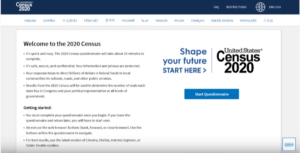Romney’s Indifference to the Poor
I wish Mitt Romney's cavalier dismissal of poverty in America could be chalked up as just another gaffe, but it's much worse than that.I wish Mitt Romney’s cavalier dismissal of poverty in America could be chalked up as just another gaffe, but it’s much worse than that. The Republican front-runner seems dangerously clueless about the nation he seeks to lead.
When I first heard the now-famous quote — “I’m not concerned about the very poor” — I thought it might be fodder for a snarky column about the wee little Mr. Monopoly who lives inside Romney’s head and blurts out things like “Corporations are people, my friend,” or “I like being able to fire people.” But I realized that being “very poor” is no laughing matter to millions of Americans.
Putting Romney’s words in their full context makes them worse. Here is what he said on CNN:
“I’m in this race because I care about Americans. I’m not concerned about the very poor. We have a safety net there. If it needs repair, I’ll fix it. I’m not concerned about the very rich, they’re doing just fine. I’m concerned about the very heart of America, the 90, 95 percent of Americans who right now are struggling.”
For my part, I’m concerned about what sounds like shocking ignorance about the extent of poverty in this country and an utter lack of urgency about finding solutions.
According to a U.S. Census Bureau report released in September, the poverty rate began rising sharply in 2007 as the recession took hold. By 2010, the report says, 15.1 percent of Americans were living below the poverty line — 46.2 million people who apparently do not merit Romney’s attention.
A substantial plurality of these poor people — about 20 million — are non-Hispanic whites. Roughly 13 million are Hispanic and nearly 11 million are African-American. These figures show that minorities are overrepresented among the poor, but also that poverty is by no means some kind of “minority problem.” It’s an American problem.
And even these numbers are somewhat misleading, since the official poverty threshold is set at a level that many researchers consider unrealistically low. Imagine supporting a family of four on $22,314 a year — food, shelter, clothing, transportation — and being told you’re not poor.
A better measure, in my view, is the number of American families getting by on incomes that equal the poverty level plus an additional 25 percent. By this standard, fully one-fifth of the nation is poor.
Romney says we have a safety net. That’s still true, despite the best efforts of his party to rip it to shreds.
For the sake of argument, let’s assume the most important support for people living in poverty — the food stamps program — continues more or less unchanged. Let’s also assume that Romney, as president, manages to “fix” Medicaid and Social Security in a way that does not reduce the benefits they provide to poor people, and that Romney’s tax plan is altered so it does not raise taxes on the lowest earners, as many analysts say it would.
In Romney’s worldview, case closed. No need to be “concerned” about poverty as long as people are not starving.
What our society ought to be concerned about is making sure that poor people have the tools they need to lift themselves out of poverty. Liberals and conservatives might disagree on how best to accomplish this goal. We can argue about the role government should play versus the private sector. We can dispute the merits of traditional public schools versus charter schools. What we cannot do is simply write off up to one-fifth of the nation’s human potential, as if it were a footnote in a corporation’s annual report.
I’m not blaming Romney for our decades-long failure to address structural poverty. The fact is that our system tends to award benefits to those who wield political and economic power. Romney was clumsily trying to pledge fealty to the interests of the middle class. President Obama, in speech after speech, has been doing the same.
But there was something disturbing about the icy way in which Romney, even when trying to clarify his initial remark, continued to insist that the poor receive government help and therefore need not be a focus of his policies. Even some conservative Republicans were taken aback, with Sen. Jim DeMint, R-S.C., saying Romney should “backtrack” and make clear he does not want the poor to languish in “government dependency programs.”
DeMint suggested earlier that Romney take pains to show more empathy. I worry — and the nation should worry — that he can’t show what he doesn’t have.
Eugene Robinson’s e-mail address is eugenerobinson(at)washpost.com.
© 2012, Washington Post Writers Group
Your support matters…Independent journalism is under threat and overshadowed by heavily funded mainstream media.
You can help level the playing field. Become a member.
Your tax-deductible contribution keeps us digging beneath the headlines to give you thought-provoking, investigative reporting and analysis that unearths what's really happening- without compromise.
Give today to support our courageous, independent journalists.





You need to be a supporter to comment.
There are currently no responses to this article.
Be the first to respond.